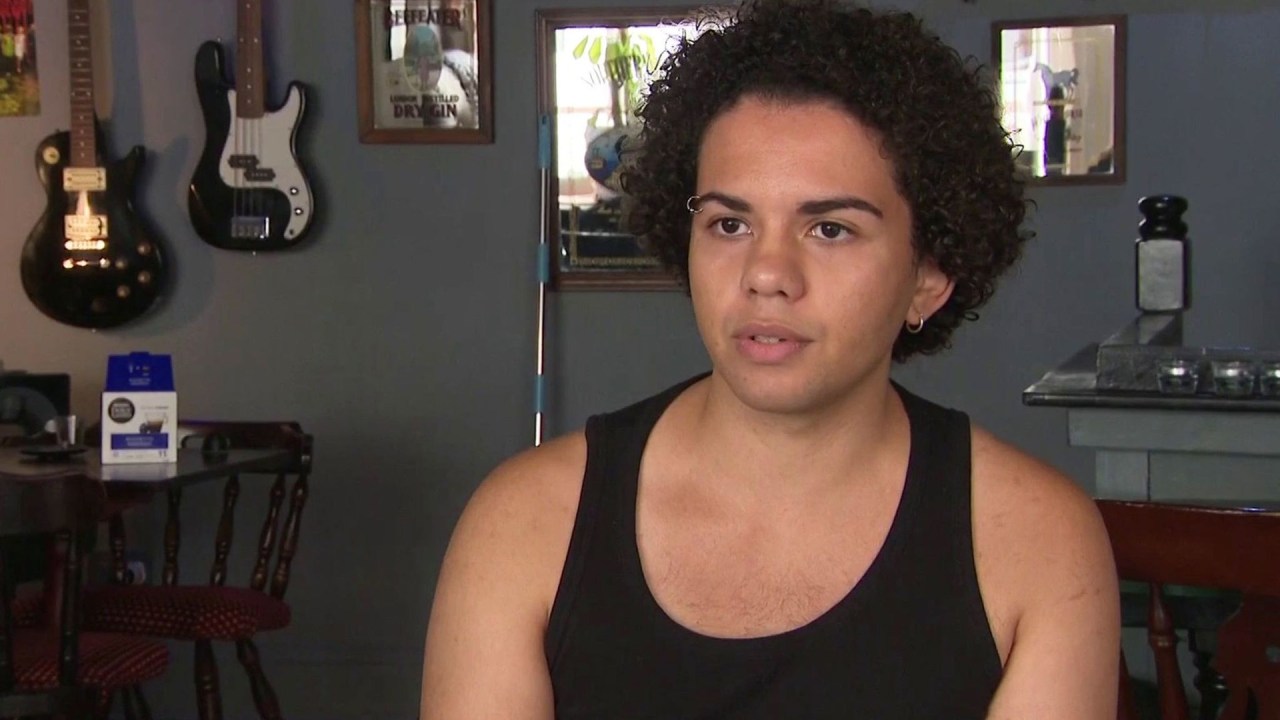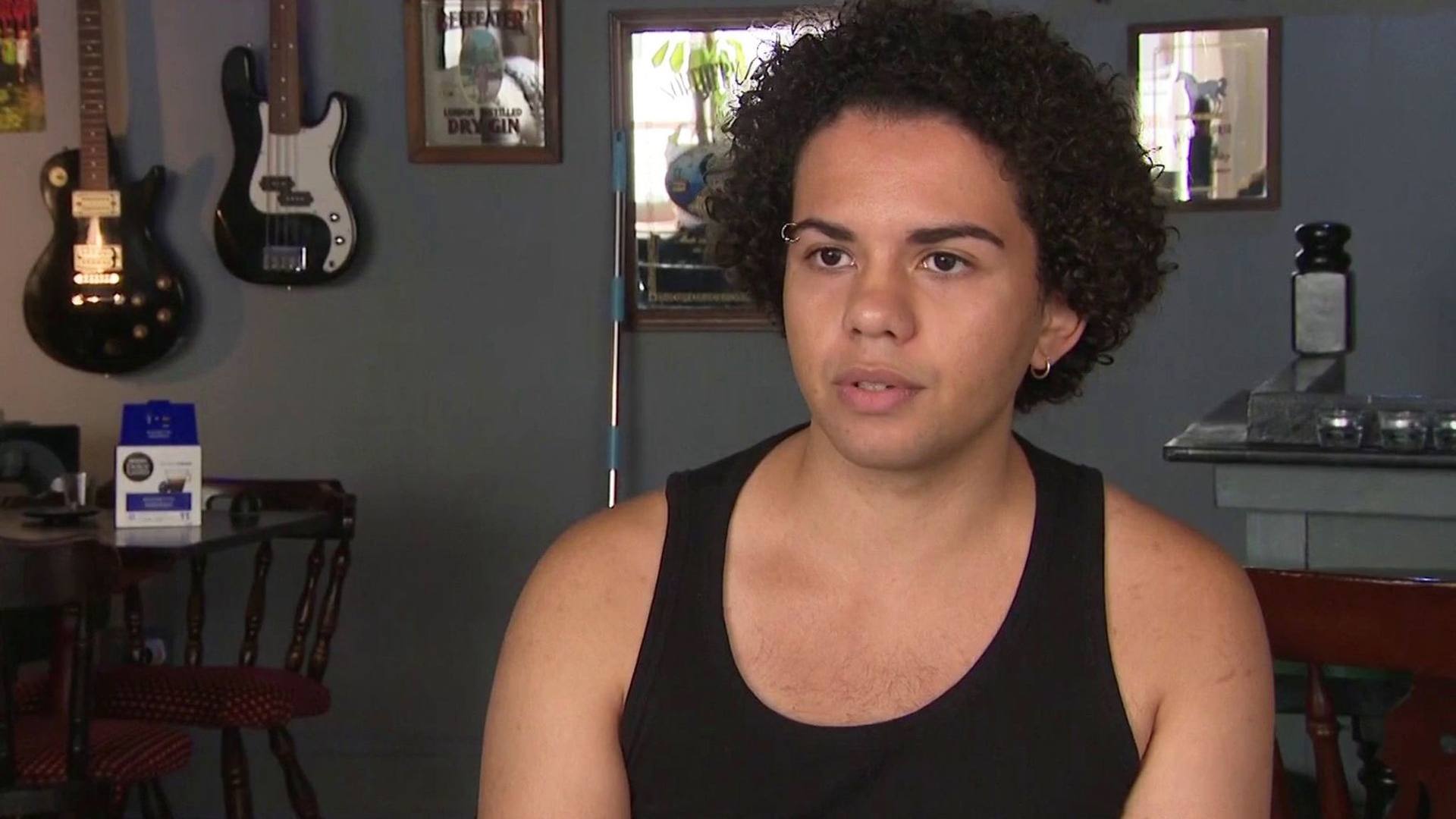Keira Bell has won her legal case against the NHS’s only gender identity development service (GIDS) for under-18s, after the High Court found that children are unlikely to be able to give informed consent for taking puberty-blocking drugs.
As a teenager, Keira began to suffer from gender dysphoria and was referred to GIDS for treatment. She was prescribed puberty blockers aged 16 followed by testosterone at 17. Keira underwent a double mastectomy aged 20, because what else do you do when testosterone gives you an Adam’s apple, facial hair and a deep voice?
Keira has since regretted her transition and no longer identifies as a man, which is why she decided to try to prevent gender clinics steering other vulnerable young women towards irreversible and damaging interventions.
The crux of Keira’s case was that she could not have possibly given informed consent to take the blockers, stating that,
‘I made a brash decision as a teenager, (as a lot of teenagers do) trying to find confidence and happiness, except now the rest of my life will be negatively affected.’
Today, three High Court judges agreed. Their judgment, deferred from October, concludes that it is ‘highly unlikely’ that a child aged 13 or under would ever be able to give informed consent to being treated with puberty blockers. It also states that it is ‘very doubtful’ that children aged 14 and 15 can understand the long-term risks and consequences of treatment in such a way as to have sufficient understanding to give consent.
The court also ruled that it would be appropriate for clinicians to involve the court in cases where there may be any doubt as to whether the long-term interests of a 16- or 17-year-old would be served by the clinical interventions of blockers and hormones.
In September this year the NHS launched an independent review of GIDS, which is part of the Tavistock and Portman Trust, and recently the Care Quality Commission carried out a separate inspection.
Last year it was reported that one of the Tavistock foundation’s governors resigned after accusing GIDS of dismissing a damning internal report which said that the service was ‘not fit for purpose.’ A number of parents had accused the service of fast-tracking young people into a transgender identity, and there were accusations – including by Dr David Bell, who had written the report in his capacity as then staff governor – that the service was failing to fully consider psychological and social factors in a young person’s background, such as bereavement or autism, which might have an influence on their decision to transition.
It was also revealed that 35 psychologists had resigned from GIDS in the space of three years, with many concerned about the service ‘over-diagnosing’ young people with gender dysphoria.
But still, despite public condemnation coming from a variety of sources, GIDS continues to stand firm, ignoring all the evidence that serious harm is being done to young people.
Even after today’s ruling, the trust has said they are ‘disappointed’ by the judgment and would seek permission to appeal.
GIDS have continued to dismiss critics who say that hormone blockers are experimental and irreversible. They have also failed to explain the huge increase in girls presenting as gender dysphoric. The number of total referrals to GIDS has increased from 77 in 2009 to 2,590 in 2018-9. In recent years GIDS has prescribed puberty blockers for children as young as 10-years-old.
The huge jump in cases of girls presenting with gender dysphoria and seeking treatment in the past few years may be partly because in 2014 GIDS director Polly Carmichael appeared on CBBC and appeared to promote the use of puberty blockers. In the clip Carmichael speaks of the ‘benefits’ of taking puberty blockers, telling a young female to male trans child that:
‘the good thing about [puberty blockers] is if you stop the injections it is like pressing a start button, and the body just carries on developing as it would if you hadn’t taken the injections.’
The clip is much closer to advertising than it is informative.
Keira Bell may have won her case, but she has lost so much in her short life. Now 23, Keira is still suffering from effects of the testosterone, and has to live with the probability that she is infertile as a side-effect of the drugs. Because puberty blockers are still in the experimental stage, something that GIDS denies, Keira has no idea whether or not she will suffer from other serious side effects in her later life.
In 2003 I interviewed Claudia who had always regretted transitioning. She told me then she believed it would take a child to make people sit up and take notice of the madness of this course of ‘treatment’ for those suffering from psychological problems. Claudia, who has since become a dear friend, was the first transgender person to speak out against the cavalier attitude of so many clinicians to chemical and surgical solutions to gender dysphoria. Keira has now established that offering many of these medical interventions to children is an outrage.
Keira is owed a debt of gratitude by the swathes of vulnerable young women who wish to escape their bodies due to nothing other than the misogynistic society in which they were raised. Medicalising a social problem is a major error, one that is now exposed for all to see, and hopefully, condemn.








Comments